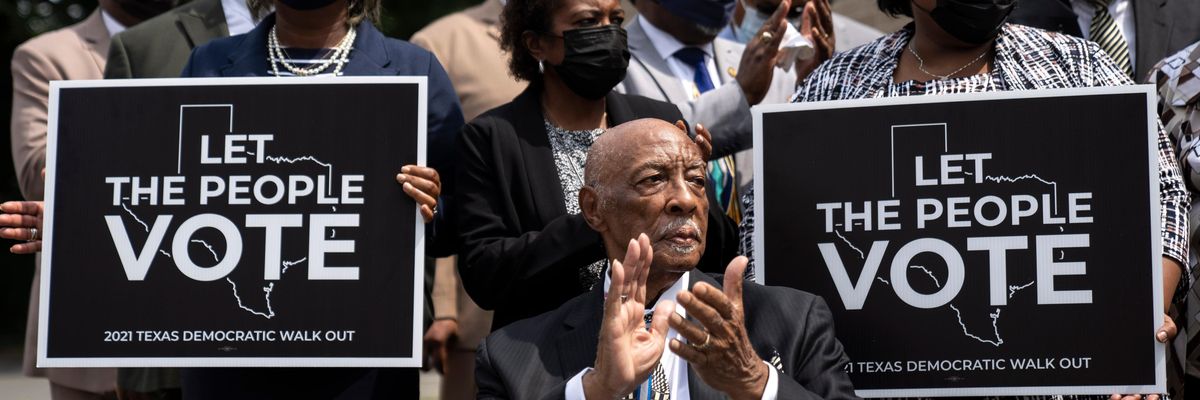A new year is supposed to trigger the energy of new beginnings, requiring at least a bit of optimism. Right? But at the anniversary of January 6th--a day of national infamy--optimism and it companion, hope, can feel out of reach.
So, maybe it's time to rethink optimism, as it feels harder and harder to muster. (I admit, it's too much for me.) Given our crisis of democracy in which a third of Americans reject Biden's election as illegitimate and Freedom House ranking our nation 61th in the world--stuck between Monaco and Romania--in "people's access to political rights and civil liberties," and climate chaos already destroying life, where do we find evidence for optimism?
Fortunately, some time ago it dawned on me that optimism--based on weighing the odds--is not required to be fully alive in this do-or-die moment for humanity and even for life on Earth as we've known it.
Through our long history, humans have made big leaps in face of seemingly impossible odds.
What likelihood of success could humanity's African ancestors have felt when first setting forth to explore the world as much as 2 million years ago? And, in our own fight for independence, what odds would early European settlers have given their defeat of Britain? Afterall, its population was three times that of the colonies, and British armaments were superior as well.
Of course, I could also throw in most life-changing innovations we take for granted today but probably would have scoffed at before they caught on like wildfire. Take the world wide web--impossible for most of us even to imagine until Tim Berners-Lee in 1990 created the first site--coming, he said later, from what was really "an act of desperation."
But, if evidence-based optimism isn't required for action, what is?
I believe humanity's journey has demonstrated that humans do not need strong evidence to justify action. Instead, we jump in when certain conditions are met. We need to feel our action serves our deepest needs, even beyond the physical, and they are: First, a sense of agency, for we evolved as "doers," not mere pawns or passive observers. Second, we are creatures meaning and thus need to feel our actions count for more than just survival. Third, as profoundly social creatures, we need to feel our actions connect us meaningfully with others.
Given our needs for power, meaning, and connection, over and over humans have shown that to act to fulfill them certainty of outcome is not required. Most of us need only to sense there's a chance that our action might matter, and we'll step up.
In this moment, as America's democracy continues to sink, some might say, for example, nah, action for the Freedom to Vote Act is useless. But Americans are not giving up. Many get it: That which is essential to address all our major challenges--democracy truly accountable to the people--is not an option. It is an absolute necessity.
Odds of success become irrelevant.
Also, note well. In our world the nature of life is continuous change in which all is connected; so, every element is shaping all others moment to moment. "There are no parts, only participants," the late German physicist Hans Peter Duerr declared to me. Thus, it is not possible to know what's possible.
From that one insight, we are free.
We are free to go for the world we want, knowing every action we take--and don't take--is changing the world. Someone is always watching, and we never know who. In other words, the only choice we don't have is whether to change the world.
And that includes the choice to step up for democracy itself--the tap root that must be made healthy if we are to tackle any of today's super challenges, from climate chaos to devastating injustice. And here's a tool we at the Small Planet Institute co-created to make it easy to step up--www.DemocracyMovement.us. Jump in... it feels great.
So, the new year opens, I thus declare myself not an optimist but a possibilist, grounded firmly on all we know about the nature of life itself.
